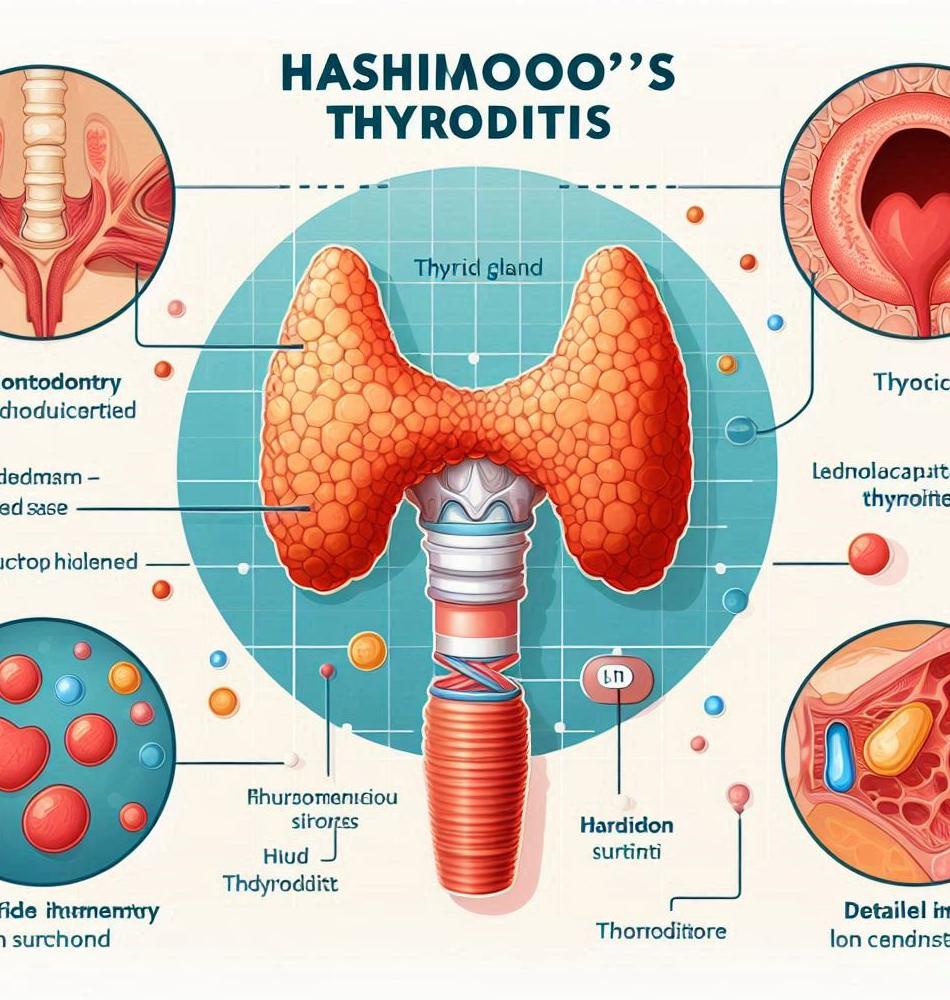Can Hashimoto's Be Cured? Unraveling the Myths and Facts 🌟
Are you one of the many individuals grappling with the challenges of Hashimoto's thyroiditis? This autoimmune disorder can throw a wrench in your daily life, leaving you with questions swirling in your mind. As the awareness around this condition grows, so do the myths and misconceptions surrounding it. So, can Hashimoto's be cured? This article aims to address that question head-on and provide clarity on a topic that is often shrouded in confusion.
Understanding Hashimoto's Thyroiditis 💡
Before we dive into the treatment options and the controversial question of a cure, let's start by understanding what Hashimoto's thyroiditis is. Named after the Japanese doctor who first described it in 1912, Hashimoto's is an autoimmune disorder in which the immune system erroneously attacks the thyroid gland. This inflammation can lead to hypothyroidism or underactive thyroid, which brings a plethora of baffling symptoms. These can include:
- Fatigue
- Weight gain
- Cold intolerance
- Joint pain
- Depression and anxiety
- Memory lapses
For many, this condition feels like a dark cloud hovering over their lives. Therefore, effective management is crucial for a better quality of life.
Treatment Options for Hashimoto's Thyroiditis 🩺
While the question of whether Hashimoto's can be cured lingers on, let's explore the primary treatment options available.
Hormone Replacement Therapy 💊
The cornerstone of Hashimoto's treatment revolves around hormone replacement therapy. Most patients are placed on levothyroxine, a synthetic form of the thyroid hormone. This medication aims to normalize thyroid hormone levels, alleviating symptoms and preventing long-term complications. Regular monitoring of TSH (Thyroid-Stimulating Hormone) levels is essential to ensure optimal dosing.
Factors Influencing Treatment Success 📝
Several factors can influence the effectiveness of hormone replacement therapy, including:
- Age and sex
- Other underlying health conditions
- Medication adherence
- Diet and nutrition
Diet and Lifestyle Changes 🌱
While medication is integral to treating Hashimoto's, lifestyle changes can make a significant difference too. Although they may not cure the disease, the following adjustments can improve symptoms:
- Adopting a balanced diet rich in fruits, vegetables, and lean proteins
- Avoiding processed foods and sugar
- Regular exercise to boost metabolism and lift spirits
- Stress management techniques, including yoga and meditation
Can Hashimoto's Be Cured? The Answer Revealed 🧐
This is where the waters get murky. Many health professionals argue that Hashimoto's is a lifelong condition. While the symptoms can be managed effectively through medication and lifestyle adaptations, there is no definitive cure in sight. Why is that the case? Here are a few insights:
The Nature of Autoimmune Diseases 🔍
Autoimmune diseases like Hashimoto's are characterized by the immune system's mistaken attack on the body. This dysfunction makes it challenging to eradicate the disease completely. Presently, research is ongoing to explore potential avenues for reversing autoimmune conditions; manifestly, breakthroughs may occur in the future.
Remission vs. Cure 🕊️
Some patients may experience remission, where symptoms lessen significantly, and thyroid hormone levels stabilize. However, remission is not the same as a cure. It is critical to remain vigilant even during periods of symptomatology easing.
Frequently Asked Questions ❓
- Is Hashimoto's hereditary?
- Can I participate in physical activity with Hashimoto's?
- How can I manage weight gain associated with thyroid dysfunction?
- What are the long-term implications of untreated Hashimoto's?
- Are there natural supplements that can help manage Hashimoto's?
Natural Remedies and Supplements 🌼
The craze for natural solutions leads many to explore herbal treatments and dietary supplements. While some people report improvements, it remains crucial to consult a healthcare professional before relocating treatment options into your routine. Some of the more commonly discussed supplements include:
- Selenium
- Zinc
- Vitamin D
- Omega-3 fatty acids
Living with Hashimoto's: Embracing the Journey 🌈
While the prospect of a complete cure may be bleak, numerous individuals live fulfilling lives with Hashimoto's thyroiditis. Embracing the journey means recognizing that proactive management can lead to meaningful improvement in quality of life. Here are a few tips for living well:
Stay Informed 📚
Knowledge is power. Keeping an open line of communication with your healthcare provider and being well-informed will help you navigate this condition more effectively.
Embrace Support 💕
Whether it's through support groups, online communities, or friends and family, finding a support mechanism can be invaluable as you deal with the emotional and physical challenges that come with Hashimoto's.
Mindset Matters 🌞
Your mental and emotional mindset significantly influences how you cope with Hashimoto's. Practices such as journaling and positive affirmations can help maintain a sense of control over your condition.
Conclusion: A Journey, Not a Destination 🚀
Hashimoto's thyroiditis undoubtedly presents its challenges; however, understanding the condition and its management options can lead to a significantly better quality of life. While a definitive cure remains elusive, positive lifestyle changes, proper medical treatment, and a supportive community can help you navigate the rollercoaster of chronic illness. So, is there a cure for Hashimoto's? Right now, the answer is no, but with the right strategies in place, you can very well live a life brimming with hope and possibility.
.png)





